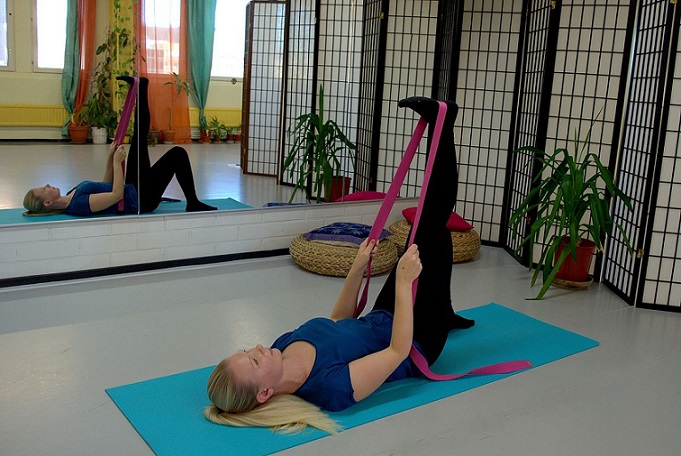A new study reveals that 12 weeks of passive stretching can help the vascular system and improve blood flow. This helps your heart to keep going in a healthy state. Researchers from the University of Milan are the master-minds behind this discovery. those who engaged in passive stretching had increased blood flow in their arteries and a decrease in artery stiffness. “Blood pressure was decreased, central and peripheral arterial stiffness was reduced, and vascular function was increased after 12 weeks of passive stretching training,” the authors of the study wrote.
What is passive stretch?
Passive stretching is a stretch where an external force provides the stretch. This can be through a stretching partner, stretching accessories, or gravity. Active stretch doesn’t include an external force.
More about the research
The researchers enlisted 39 healthy men and women and split them into two groups. One group was instructed to do leg stretches five times a week for 12 weeks, and the other group didn’t do any stretching. Those who stretched saw an improvement to their vascular system. The researchers say this could have implications for diseases that involve changes to blood flow, such as heart attack and stroke.

“In this Italian study, there was a significant improvement in flow-mediated dilation, which can be thought of as the ability of an artery to dilate in response to an increase in blood flow,” said Jonathan Myers, health research scientist and director of the Exercise Research Laboratory at the Palo Alto Veterans Affairs Health Care System in California. “A novel finding from this study was the fairly remarkable changes in vascular function simply by passive stretching,” Myers added.
Vascular diseases
“Vascular disease” is a term used to describe any abnormal condition of the arteries or blood vessels. The vascular system in an adult is made up of 100,000 miles of blood vessels. Problems occurring within this system can be serious and cause pain, disability, or death. Stroke, blood clot (pulmonary embolism), and heart attack can occur when blood flow is affected by arteries that are damaged or not working well. “Good blood flow leads to reduced pressure within the system, leading to less damage on the wall of the artery. Reduction in blood flow due to artery/arteries not being compliant can lead to elevated blood pressure, which can increase risk of stroke and heart attack,” said Dr. Sanjiv Patel, an interventional cardiologist at MemorialCare Heart & Vascular Institute at Orange Coast Medical Center in California.
How to improve vascular system?
According to Dr. Neica Goldberg, a cardiologist and director of the NYU Langone Center for Women’s Health, it’s important that arteries are flexible and not stiff. Aerobic exercise, weight loss, and treating high blood pressure can reduce stiffness in the arteries. Medications such as statins can also help with flexibility. The research team of this study say that doing stretching could be beneficial for the vascular system during extended periods of confinement due to Covid-19. “This new application of stretching is especially relevant in the current pandemic period of increased confinement to our homes, where the possibility of performing beneficial training to improve and prevent heart disease, stroke, and other conditions is limited,” Emiliano Ce, one author, said in a press release.
However, Dr. Goldberg said that further study should be carried out to get clearer idea into the theory. “Right now, the stretching study is promising, but more data is needed in people who have heart disease, diabetes, high blood pressure, and other forms of vascular disease,” she said.




![The Top & Most Popular Seafood Bucket Restaurants in Dubai for you [Never Miss]](https://uae24x7.com/wp-content/uploads/2020/09/8-seafood-in-a-bucket-scaled-e1600739237403.jpg)
![Procedures for Renewing the Driving License in Abu Dhabi [3 Simple Steps]](https://uae24x7.com/wp-content/uploads/2020/07/Capture-9-e1595666454466.jpg)





